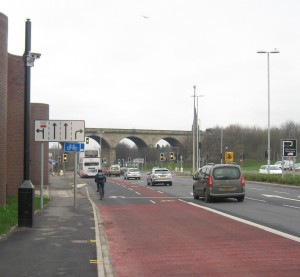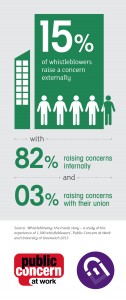|
|
 Andy Brewin, Social Housing and Social Value Business Manager, AkzoNobel Dulux Trade brand owner, AkzoNobel was named as a key contributor to the development of a new toolkit at its launch last week – Social Value and Procurement: A toolkit for housing providers and contractors – that defines and measures social value through the life cycle of the procurement process.
The toolkit developed by HACT with the support of solicitors, Trowers & Hamlins LLP and procurement specialists, echelon Consultancy Ltd alongside contractors and Housing Associations, enables Housing Providers to quantify and measure social value generated through the supply chain. The HACT social value methodology, Wellbeing Valuation , provides a consistent mechanism to enable contractors and manufacturers to identify and respond to the needs of registered providers.
AkzoNobel was the only manufacturer on the HACT-led working group that designed the toolkit, demonstrating the company’s commitment to helping Housing Providers and contractors define and deliver social value within procured contracts. The toolkit will enable companies bidding for contracts in the housing sector, including Dulux Trade Contract Partners, to clarify precisely how they will drive social value through delivery of the contract.
Andy Brewin, Social Housing and Social Value Business Manager, AkzoNobel, one of the speakers at the launch, spoke of his optimism that the new HACT toolkit will help the supply chain to achieve ambitious targets linked to social value measures. He also told the audience of professionals from the Housing Provider, Authority and developer community including Northern Housing Consortium, Wandle and Wates that the toolkit will help to positively impact the lives of people living and working within the social housing sector. Reiterating the responsibility of companies throughout the supply chain to drive forward and improve social value ratings, Andy Brewin used AkzoNobel as an example of a manufacturer that not only uses its paints to demonstrate social value but that is committed to driving up and improving training prospects and skills-based learning for housing sector beneficiaries.
Andy Brewin, AkzoNobel said: “We are delighted to have been invited to work with HACT and the other partners on the development of the toolkit. It was important to us as a company to contribute to its development from the point of view of a manufacturer as the whole supply chain has to be considered if attempting to seamlessly deliver social value through the procurement process.”
“Our participation has allowed us to evaluate our own social value to the housing sector. Our social value will be measured through our future product or service developments, through our brands such as Dulux Trade, our new training facility, the Dulux Academy for professional decorators, trainees and apprentices and through the scheme we run for our Contract Partners. Our participation on the working group has reinforced that manufacturers, contractors, Housing Providers and Authorities need to be aligned so that they can recognise and meet the needs of the people that they serve.”
For further information about the toolkit, please visit hact.org.uk/procurement-toolkit or www.duluxtradepaintexpert.co.uk
 Mark Hall By Mark Hall, public sector director at Redcentric; and Peter Nailer, senior bid manager at Redcentric
From vehicle hire to laundry services to enterprise technology – there are now countless purchasing frameworks for almost anything the public sector needs to buy. Take the Digital Marketplace, specifically covering technology. The several frameworks within it, such as G-Cloud, comprise numerous different lots with each of these offering a variety of technology choices. Add to this all of the other buying organisations and their frameworks and quickly the options for the public sector buyer become complex and downright confusing! As an IT services provider included on frameworks such as G-Cloud 7 and the NOECPC Hosting framework, at Redcentric we have had a front row view of how frameworks have evolved. Originally established to help simplify purchasing (particularly for smaller public sector buyers with limited buying power) and bring cohesion to public sector procurement, there have been many success stories. However, as the number of frameworks grows by the day, are frameworks still doing the job they set out to?
Considering that sales over G-Cloud recently hit £1 billion, it is clear to see that this framework has achieved its goal. With some 1,900 approved suppliers in place it has created a highly competitive marketplace centred on the government’s ground breaking ‘Cloud First’ strategy for both SMEs and large IT suppliers.
The conditions set by G-Cloud encourage fairness by ensuring a level of transparency. For example, suppliers have to publicly display pricing on the framework to give each other an accurate view of what they are charging, allowing competitors to set their rates accordingly. Also thanks to G-Cloud contracts not exceeding two years, buyers aren’t stuck with suppliers for an excessive length of time, and can rethink their options as they themselves evolve.
But the benefits and adoption of G-Cloud do not resonate across many other frameworks. Some place a cap on the number of suppliers able to win a place on the framework effectively creating monopolies dominated by big players who have the resources to apply. These caps fail to properly harness competitiveness amongst suppliers and do little to encourage them to innovate. Some framework contracts are set for as much as four years, tying organisations into long relationships that may go beyond their requirements.
The increase in volume of frameworks is also a problem. This rise is partly due to fact that any organisation operating in the public or not-for-profit sector has the authority to establish a framework and encourage other organisations to use it – provided they comply with EU law. Everything from schools and colleges to district councils and charities have done so, drawn to the commercial gains and incentives. For every sale made over a framework the founder receives a commission of between 1 and 5%.
 Frameworks: a victim of their own success So let’s consider, does the current framework landscape meet its goal: to make public sector buying easier and more cohesive? The answer is complex- in some cases, like G-Cloud, the answer is yes, in many cases the answer is no.
Speaking from a supplier perspective, the sheer volume of frameworks that exist, even just in relation to IT, create pressure to apply for a place on them all in order to avoid missing out on potential business. This can be a full time job, with smaller suppliers who lack resources pushed out. Once again this means that larger suppliers are likely to realise greater opportunities, reducing the ability of frameworks to deliver a level playing field. But more worryingly is the impact on innovation. As the choice of suppliers diminishes so too does the choice of innovative and cutting-edge solutions from start-ups that lack experience and funds to gain a place on the framework.
As technology frameworks have increased in public sector procurement, the IT community has responded with a rise in the level of subcontracting used to deliver the work required against them. However, this goes against the transparency that frameworks are meant to provide. Naturally for simplicity sake, IT managers tend to prefer a single supplier to meet all of the organisation’s needs, meaning that many IT suppliers have to outsource to deliver the full service. But this too favours the big suppliers, as they can afford to win a place on the framework, but then subcontract most of the work to smaller companies who can only be on a framework via their contractee. Larger suppliers retain a cut of the profit generated from the sale, passing small margins on to contractors who deliver much of the work.
Public sector buyers are already faced with complexities when using frameworks to procure resources. While the frameworks aim to support buyers by undertaking compliance checks of suppliers, there can still be a burden on the buyer as regulations change or are updated. Take the Public Contracts Regulations 2015, which is available in a 127 page document at www.legislation.gov.uk. While it’s down to suppliers to review and ensure they’re compliant, it’s often a non-procurement professional, such as an IT manager, who is the one making a technology purchasing decision with limited knowledge, understanding or time to review regulations.
So how can the situation be improved? Firstly a holistic review of all frameworks in operation across the public sector would help to show where effort is being duplicated and if there is an opportunity to pool the buying power of multiple framework operators and buying organisations. Frameworks need to start properly delivering on the goal of bringing the buying power of many public sector organisations together, to forge better deals and consistency, rather than just flooding the market with different options. There should be more regulation of framework provision, rather than an open book, ‘the more the merrier’, approach.
The popularity of a framework approach has certainly taken off, but in recent years we’ve seen the market grow in complexity rather than simplify purchasing. With large companies still dominating an increasing number of frameworks, and many lacking transparency with regards to sub-contracting, it’s possible the market may well end up counter-productive. Clearly this is where the success of G-Cloud should be heralded as a way forward for other service areas and lead others by example.
While the copious amount of frameworks may baffle public sector buyers, service providers can step in to help reduce the confusion. Redcentric offers a free consultation service in line with the ‘Cloud First’ goal. Our service establishes how Cloud and hybrid options can help specific public sector organisations achieve their objectives, and determines what digital services they will benefit from. The benefit of Cloud, including flexibility and remote working, are too plentiful not to adopt. And a successful implementation starts with a consultation to see how it can best suit the individual organisation.
To discover how Redcentric keeps it simple – providing efficient, secure and flexible Cloud solutions for the UK public sector contact us on:
Call: 0808 164 3515
Visit: www.redcentricplc.com/public-sector
Email: sayhello@redcentricplc.com
Oldham Council welcome Transport for Greater Manchester proposal to switch to new battery powered buses in the future.
 The Leader of the Opposition and of the Liberal Democrat Group on Oldham Council, Councillor Howard Sykes MBE, has welcomed the announcement earlier this week that officials from Transport for Greater Manchester (TfGM) have met with the Volvo Bus Corporation to discuss proposals to replace the current bus fleet with a new electric fleet run on rechargeable batteries. The Leader of the Opposition and of the Liberal Democrat Group on Oldham Council, Councillor Howard Sykes MBE, has welcomed the announcement earlier this week that officials from Transport for Greater Manchester (TfGM) have met with the Volvo Bus Corporation to discuss proposals to replace the current bus fleet with a new electric fleet run on rechargeable batteries.
Councillor Sykes represents Oldham Council on the Transport for Greater Manchester Committee (TfGMC). On hearing the news he said:
“I am pleased that Volvo have indicated that they would like to start a trial of up of thirty new battery-powered buses in Manchester city centre in 2017, and that they would also like to back this with an investment in charging points. I look forward to the day when these buses run in Oldham and they will help make a contribution to tackling the air quality issues we have.”
“The Liberal Democrats firmly believe that making our public transport system greener must be seen as a priority,” added Councillor Sykes. “We need to move away from fuel-guzzling, carbon-emitting vehicles to clean, quiet electric vehicles. We have already made progress with hybrid vehicles but this represents the next step. I look forward to the day when passengers can ride on any bus knowing that they have made a green choice for their journey.”
 LEGALEX, 11-12 May 2016, ExCel London – stand L554 LEGALEX, 11-12 May 2016, ExCel London – stand L554
PHS Data Solutions, a division of the PHS Group, will be promoting at Legalex, their latest document protection and digitalisation schemes to help legal practices combat data security threats.
As data protection laws demand more proactivity from company executives, business information security defences must be strong to protect practices and to avoid serious data breaches and the associated stiff penalties.
PHS Data Solutions is a leading player in the scanning, storage and shredding industry for a variety of sectors including Government and legal organisations. It offers outstanding services to support Law firms who need to bring their business practice into the digital age.
Courtrooms across the UK are being catapulted into the digital age by the Ministry of Justice’s digitalisation programme which aims to make obsolete the 160 million sheets of paper generated by the courts each year. Legal firms will need to make sure they are up to speed with the digital super highway and its requirements for compliance if they are to remain at the forefront of their industry.
Scanning and data capture solutions and services, such as those offered by PHS Data Solutions, enable organisations to capture, process, manage, retrieve and share business-critical documents, archives and information digitally across and between organisations. Information flow and security is improved resulting in businesses needing much less space for the storage of documents and allowing them to rest assured that they have a robust system in place to minimise data breaches.
The legal sector has obligations to keep paper records which may create large quantities of paperwork needing management and storage. PHS Data Solutions offers a secure off-site document management facility that can also provide a scanning service to avoid transportation costs and any potential for loss in transit of important information.
Nowadays many businesses are required to keep confidential client information, as well as employee or company data, for a minimum amount of time. This could include: employee agreements, business loan documentation, litigation records and many sensitive documents which require careful management. It is important not to just be compliant but to carefully dispose of documents you may no longer need. The risks of keeping old documents containing sensitive data can be high, possible resulting in identity theft, fraud and potential financial loss or reputational damage.
At Legalex PHS Data Solutions will demonstrate how to create a sole chain of custody for the most sensitive of data which ensures a minimum of risk of being breached. The company is renowned for providing tailored and unique document digitisation services and solutions to meet each client’s individual requirements. It numbers amongst its clients Ward Hadaway (one of the UK’s Top 100 law firms).
The company’s UK team will be on hand at the exhibition to answer any questions which Law firms may have on how to spring clean their document scanning, storage and destruction processes. PHS Data Solutions Managing Director, Anthony Pearlgood, said: “We are delighted to make our debut at Legalex and to be able to showcase our document protection schemes. We really can help businesses stay secure and provide them with business continuity following any scenario.”
Legalex must be a priority if your legal practice needs to know how to address the demands of business digitisation and the safe-keeping or destruction of sensitive data. Be sure to visit PHS Data Solutions on stand L554 and find out more about what one of the UK’s leading document capture and conversion specialists can do to help deliver a complete workflow solution for your business.
If you can’t make the show but would like more information then contact Ruth Williams, Head of Marketing on 029 20809111 or email ruthwilliams@phs.co.uk or www.phsdatasolutions.co.uk
 The Altius supplier assessment and supply chain compliance framework By Gary Plant, Managing Director of supplier assessment and compliance specialist Altius
Outsourcing can help tightly stretched public sector budgets stretch further and free up resources. But it can go spectacularly wrong if your supplier assessment and compliance systems are weak, or you don’t have good visibility of your contractors and their sub contractors.
Say no to spreadsheets
You don’t need superpowers to cure supply chain blind spots and reduce risk, but you do need modern software systems. Spreadsheets and questionnaires are the ‘kryptonite’ that weakens effective outsourcing and supplier management. These manual processes are slow, cumbersome, time consuming, and inflexible.
By making use of specialist software, public sector managers can simplify the task and minimise the cost of compliance management. This will mean that managers can focus on developing supplier value, rather than supervising and ‘policing’ the contract.
Modern software systems, such as Altius’ Exigo, can keep pace with rapid change and contract growth, and can be used collaboratively. The flexible software package also integrates with other back office systems to retrieve audit evidence and generate quick management reports.
Three steps to compliance
Managers can follow a three-step compliance process, which is underpinned by Altius’ Exigo software solution.
1.Assess capability
a. Supplier information is needed to establish capability to carry out the service or deliver the product required. But there’s little point in gathering the same information for each supplier. It must be pertinent to the service they are providing or goods they are supplying.
b. Verify the supplier information – don’t take the claims of a supplier, always verify that their credentials are valid. Checks that are carried out on supplier information should always be evidence based and may involve verification with certification bodies or insurance companies. This evidence shouldn’t just be checked once a year, it should always be live, up to date and instantly retrievable.
c. Authorise the information – once a supplier is thoroughly checked and approved, ensure that only approved suppliers are used by all departments. All too often the reality is that different departments stray from the approved suppliers list to appoint non-approved suppliers based on cheaper price. This can prove very costly if that decision also ‘buys-in’ risk.
2.Manage supply contracts
a. Set clear policies and rules – for clear mutual understanding of expectations. Share with the supplier and their employees exactly the kind of work that they have been verified to carry out – in granular detail. Don’t permit them to do work outside of the scope you’ve checked them for.
b. Contracts and specification – formalise your requirements so that nothing is left to chance.
c. Controls and restraints – ensure that suppliers understand any control processes that need to be followed, e.g. site access control on construction sites, exposure to heat, radiation, etc.
3.Monitor suppliers
a. Behaviour – don’t let the robustness of your monitoring lull your suppliers into complacency and remove their sense of responsibility for their own compliance and performance. It’s important to be clear about where accountability lies, particularly where sub contractors are involved.
b. Audit – while physical audits have their place, technology can be used at lower cost to provide an audit trail This can replace sprawling spreadsheets – minimising timescales and maximising efficiency.
c. Key Performance Indicators (KPIs) – it’s often said that what doesn’t get measured doesn’t get done. It’s important to gather, measure and analyse statistics that illustrate whether the desired outcomes and objectives were achieved, e.g. . % delivered on time, % fixed first time, % call outs achieved within target time.
How Exigo software helps
The Exigo software can be configured to assess performance and compliance for many business areas, such as health and safety, bribery and corruption policies, CSR, quality, environmental and employment law, and information and data security compliance
It is cloud-based, so requires no hardware or software installation, and integrates with existing enterprise systems. It provides automated report generation and data exportation compatible with other business formats, such as Excel.
Control and transparency
 Screenshot showing the Altius Exigo compliance software system. Unlike spreadsheets and questionnaires, Exigo allows you to formulate your company’s requirements and convey these quickly and easily to your suppliers. Changes can be factored in quickly and easily and you and your suppliers can work collaboratively..
Visibility
Exigo provides a real-time view of compliance, enabling you to check the current and past status of any supplier at any time. It instantly highlights your weak points and potential issues, allowing you to resolve them before they become a risk.
Protection
When things go wrong you need to be in a position to identify how and why. Exigo tracks everything automatically. Its built-in audit trail enables you to retrieve the exact status of a supplier from any previous point in time, along with the evidence and rationale for the decisions made.
Take a look at the Exigo video and request a demo of the software: resources.altiusva.com/request-a-demo-of-altius-exigo-software
Further information www.altiusva.com/software
 By Stuart Littleford MCIJ By Stuart Littleford MCIJ
Police are investigating after the Government & Public Sector Journal (GPSJ) discovered school children being asked to indecently expose themselves live online during lesson time.
The school children are using a popular live streaming app installed on their smart phones to broadcast live to thousands of viewers around the world. Teachers are unaware of what is going on as the children are cleverly hiding their phones out of sight.
At one school, Becket Keys Church of England School, in Brentford, Essex, two female pupils were seen publicly broadcasting live during one lesson with their teacher present at the front of the class, totally unaware of what was taking place, the girls chatted to viewers live on their phone and showed various shots of the classroom and the teacher.
Two viewers asked one of the schoolgirls to “film up her skirt” and another asked one of them to expose her breasts, another said he wanted to “f*** their brains out”, all these vile remarks were seen by hundreds of other viewers. There was a constant flow of generally abusive and degrading sexual comments made to the children whilst they were online.
Another school, Greenshaw High School in Sutton, Surrey, saw two girls streaming live from a lesson with their phone cleverly hidden between two computer monitors and out of sight of their teacher, they proceeded to give out their social media contact details to viewers who asked for them – with one viewer asking if they “were watching porn”.
A female pupil at the Harris Academy Falconwood, in Kent, had her phone hidden in her school bag and was able to talk into it unnoticed during her lesson, one comment amongst many made to her was “you show boobs”, the broadcast ended abruptly as the teacher came to stand nearby.
Other live feeds showed schoolgirls in a PE lesson at a South of England academy, again online strangers made lewd sexual comments including “I am wa**ing over you” and “get your t*ts out”.
Pupils at secondary schools in towns such as Hull, Huddersfield, Barnet, Haringey, Lewisham, Derby, Sutton, Greenwich, Newham, Lewisham, Enfield, Haringey and many more, have been seen broadcasting live from lessons, leaving them open to the same type of online abuse. These live feeds are taking place all over the UK at all times of the school day and for different lengths of time.
 Debbie Abrahams, MP for Oldham East and Saddleworth and Shadow Minister for Disabled People, said: “This is a shocking revelation by the Government & Public Sector Journal.” Although none of the broadcasts we saw showed any sexual or indecent images, the comments made by some of those watching was clearly an attempt to have the girls expose themselves sexually. Many law enforcement agencies and child protection units would class this as grooming and exploitation. The ages of those contacting the girls could not be determined though due to the anonymity of the site.
GPSJ immediately contacted all the schools that could be identified to ensure they could follow their safeguarding procedures to ensure the safety of the children. None of the schools we contacted were prepared to provide us with any comment over our findings.
Ironically, mixed in with the list of live broadcasts from schools was a live meeting of the Warwickshire Police and Crime Panel.
A leading children’s charity said it was extremely concerned at the way social media was being used in schools and that makers of such apps should act responsibly to help protect children.
Barnardo’s chief executive, Javed Khan said: “It’s deeply shocking that children are being groomed and exploited via this social media app while in school where they should be safe. “A wider conversation needs to be had around how children use their phones and the consequences in school and at home. The companies making apps must exercise social responsibility and moderate content to help protect children and alert police to sexual predators – here in the UK and across the globe. “Technology has inevitably changed the way young people communicate and meet online. Barnardo’s wants lessons on sex and healthy relationships to be compulsory in all schools, so children can understand the risks of social media apps like this.”
A Department for Education spokesperson told us: “Nothing is more important than keeping our children safe. Our statutory guidance is crystal clear that anyone who has concerns about pupils’ welfare should refer to local authorities or the police if a crime is committed, and all schools must act swiftly on allegations. All schools must have designated safeguarding leads and staff should speak to them with any worries about a child’s welfare.”
Politicians have also told us that the government should now make it one of its top priorities to ensure children are given adequate sex and relationships education, and are fully aware of online dangers.
Debbie Abrahams, MP for Oldham East and Saddleworth and Shadow Minister for Disabled People, said: “This is a shocking revelation by the Government & Public Sector Journal and we must all do everything we can to warn children, their parents, carers, and schools about the potential dangers.
“Labour has highlighted increasing evidence that access to new media and technology is creating new and unprecedented risks for young people.
“We’ve also said that we want to make personal, social, health and economic (PSHE) classes, which covers age appropriate sex education, compulsory in all state-funded schools in England and this would be one of the first things Labour would do in government. On the other hand the Government is only saying it will keep the subject’s status under review.
“This seems short-sighted to me when you consider the official guidance to all schools, including academies, on sex-and-relationships education has not been updated since 2000, before the smartphone generation were even born.
“The Government really should make this issue a priority and stop stalling.
“The longer they stall the more young people will be hurt by this misuse of modern technology.”
A headmaster at one London school, who wished to remain anonymous, told GPSJ: “At our school (an 11-18 London inner city comprehensive) phones are not allowed to be used, seen or heard whilst on the school site. They are confiscated if seen or heard and returned at the end of the week. This is done for two reasons – distraction from learning and the concerns about inappropriate use.
“In addition to this all students receive instruction on the safe use of phones, social networking and electronic communication through their ICT and PSHE curriculums with additional meetings for parents held each year to discuss issues of concern relating to phone an internet safety.
“We are aware of cases where phones and electronic communication are used inappropriately and we see it as our key duty to keep our students safe. If we were to be aware of any issues compromising safety we would immediately involve parents, police and local authority safeguarding officers immediately.”
Professor John Walker, an expert witness in the field of cyber and digital communications at Westminster University, told us: “Such online exchanges are fraught with danger, just because of the potential of being subjected to grooming by an unknown party who may not be all they appear to be. But the dangers faced also concern such mages being utilised to embarrass, and to implicate the sender to be subjected to blackmail -an incident we have already seen to suffer a tragic outcome.
“It should be incumbent on all schools, and academic institutions who host such young clients to ensure that all staff are aware of the dangers, and that they are prepared to engage when they encounter events which implicate such activities. I would wish also that such institutions are aware of the COPINE and SAP Scale which document in detail the level of an abuse image to assure they are dealt with in accord with the law – and where required reported to the relevant Law Enforcement Authorities.”
The ‘periscope’ app is not only popular with young people, it is used by many businesses, media organisations, police forces and charities to stream meetings and conferences live. Viewers can type comments and ask questions in real time, these are displayed in real time on the screen for all the viewers to see. Love heart symbols can be sent by participants of the feeds to show how much they like the content they are watching.
Government & Public sector Journal has been in contact with the National Crime Agency and CEOP to report our findings, and will be cooperating with any investigations.
A police source has told us they understand one of the pupils identified in these broadcasts has possibly been exchanging “indecent images” of herself through other social media apps.
A spokesperson for the NCA told us: “We need to wait until appropriate enquiries have been made. We cannot comment without better understanding what we are being asked to comment on.
 Grant Palmer, Managing Director of Axiell UK By Grant Palmer, Managing Director of Axiell UK
With the rise of the internet and the influence that technology has on social behaviour, it’s now possible for people to research, learn and interact without leaving their home or workplace.
So what are the trends impacting public library usage and how can local authorities entice visitors to frequent more often? Grant Palmer, Managing Director of Axiell UK, discusses some of the findings in the recent The Library of the Future report.
Our research shows us that more than half (56%) of those in the UK aged 16 years or over visit their public library, but visits are not a regular occurrence, with people making a trip to their library just 23 times a year on average. Libraries were established as places for reading and learning, so it was not surprising to see that the majority of people are using their library for this very purpose, with around two-thirds (65%) of people visiting their library to borrow a book to read. However, we also identified a number of other drivers that are influencing behaviours and visits.
Today’s library visitors
The traditional role of the library is still important. More than half (52%) of adults like borrowing books and educational DVDs from a library rather than buying their own, for example, while 37% told us they make visits to research or work and around a quarter (27%) go for casual reading within the institution itself.
That said, technology and its influence on public libraries continues to dramatically change the landscape. So it was not surprising to learn that around two thirds (67.4%) of adults are interested in seeing at least one new digital element from their public library, from online community pages to eBook borrowing to ICT training in the public library itself. Wi-Fi and broadband services are also a pull for some, with around one in five respondents visiting their libraries to access the internet.
Creating a community hub: new services for greater appeal
Our research revealed that the public places high value on both ‘community’ and the role of the library.
The appetite for community is strong, with 78% of the adults we surveyed agreeing that having a hub for their village or town was important. Engagement is also key, with 77% wanting to know people in their local area and 71% saying they are keen to have a place to meet others in their local community.
When we questioned adults on their views of libraries specifically, a significant 89% agreed that libraries are an important part of the community (46% of these strongly agree). There is a clear opportunity for public libraries to become the hub of the local communities that they serve, but the question is: how?
Evolving the services of the library is key, with 66% of adults saying they would visit their public library more if it offered a better range of services. Demand was high for spaces that offer entertainment and facilitate interaction, including social clubs, coffee shops or cinema rooms to watch short films.
Expanding educational opportunities was also cited, including free language classes, courses to learn digital skills, or the opportunity to meet and talk to experts or authors. A significant 61% of adults also expressed interest in their local library offering services such as a post office or parcel collection desk.
Creating the library of tomorrow means maximising relevance to the community and its citizen demographics. It’s about creating outstanding customer experiences and embracing digital services to engage with patrons wherever and whenever they want to engage, and maintain a position as a critical community service.
With better technology, libraries can understand their customers’ preferences better and use this information to target them with more personalised communications. It’s not about being ‘big data’ experts, but using technology to leverage on data to essentially be able to offer people what they want.
Ultimately, any library engagement strategy needs to be about knowing your audience better and offering services to meet their needs. It is impossible for any librarian to memorise the needs of every visitor, but there are information systems and technology that is ideally placed to do just that – quickly and accurately.
With the right tools in place, libraries can not only work smarter but create an environment that allows staff to focus their time on engaging with and helping members of the community, whether they are in the library, at offsite events or online.
Axiell is the is the leading supplier of IT systems and services to European archives, libraries and museums with technically advanced and innovative solutions developed in close cooperation with its customers.
 Paul Excel with the tabs app design award With technology’s ability to drive efficiencies, cut costs and improve scalability, flexibility, productivity and immediacy, adoption of new smart technologies is increasingly being cited as the antidote to the swathing cuts hitting the public sector. The government’s G-Cloud 7 digital marketplace, where such technology as multi-award winning tabs®(www.mytabsapp.com) – the 24/7 mobile shift management solution, that can save 40% in recruitment and deployment time and costs, and is fully automated from shift alert, through acceptance and compliance to payroll and sign off – represents a seismic shift from 2010 where only 38% of the public sector were prepared to rely on such technologies, to 78% prepared to do so last year.
By the end of this year local governments will have seen their spending reduced by 35%, compared with 8% in education and a small but welcome 4% increase in health, some councils see a perfect storm on the horizon with an increasing need for elderly social care and yet ever decreasing budgets. That horizon seems primarily in focus in Metropolitan regions, with many urban local authorities stating they face a ‘tipping point’ by the end of 2016. Technology, like tabs® that truly can save local governments 40% in staff implementation, and even drastically reduce reliance on expensive recruitment agencies, could indeed help rebalance this tipping point.
Professional services leader, Grant Thornton’s ‘2016 Tipping Point Report’, the third annual financial health check of English local authorities, stated. “The majority of councils in the south east – with the exception of one single London borough – felt they will approaching a financial tipping point during 2016/17 and expected that to extend into 2018. Councils in the south west, Midlands and the north concurred. And while many local government leaders are realistic enough to accept the inevitability of the government’s funding policies, some commentators question the sustainability of the current funding model.”
PWC, another professional service giant say in their public sector blog. “The promise to free councils from their council tax caps if they agree to invest more in social care – though welcome – is not the long-term answer to making elderly care sustainable. It will, however, offer some much-needed respite from the diet of cuts that the care sector has been experiencing – in the last year alone 3,000 care home beds have been lost with a ricochet felt in hospitals throughout the country.”
In essence the cuts, caps and increased pressure on the public sector will continue, forcing local government leaders to seek evermore creative ways to save money. And with pre-approved budget-saving technology, such as those on G-cloud 7 – tabs® in particular – the road to substantial savings is proving to be a digital one.
tabs® – described as “recruitment revolution” by one of the judges of the technology’s 5 awards and 8 nominations (in technology, app design, HR and business innovation) from across two continents – is wholly customisable and so can be deployed across the entire public sector, from social services to HR departments, health to emergency services, social care to education. With the ability to issue live 24/7 job alerts to permanent workforces and recruit temporary workers, freelancers and contractors via smart technology, tabs® is reactive to its users’ busiest periods, sickness and holiday cover on hour by hour basis.
Paul Excel previously Chief Technology Officer at BT and Chairman of Global iLabs, the makers of tabs® says, “The public sector and the NHS are under increasing budget pressures, but also facing an ever-growing need. tabs® represents a potential saving of millions for councils, the NHS and even the police, fire, emergency and prison services where staff are deployed around the clock and paid via the public purse.”
Greg Wixted MD of Global iLabs and Inventor in Chief of tabs® welcomes the opportunity show local authority and public sector leaders just how the solution will create huge savings. “The hundreds of hours of insight that defined in invention process of tabs® coupled with the cutting edge technology means it truly does impact positively on budgets. Our commitment to continually update our technology and offer that free of charge to our customers means that the savings tabs® offers will last a generation. ”
tabs® is a powerful yet simple mobile solution enabling live, fully automated staff deployment.
tabs® utilises smartphone technology via a dedicated app and web portal and is customisable for all businesses.
tabs® is more than just an app – it’s a complete end-to-end technology platform that saves time and money.
What are the benefits of tabs®?
- Cost effective – reduces costs by up to 30%
- Flexible – buy-out or opt-in service via subscription
- Efficient – saves businesses up to 40% in man hours
- Accessible – for anyone with mobile phone, tablet or laptop
- Customisable – custom- built for your business needs
- Scalable – for local, national and global businesses
Who is tabs® for?
tabs® is specifically designed to recruit and deploy permanent and temporary shift workers, contractors, freelancers, on site or in the field. It works 24/7 across multi-site locations locally and nationally.
tabs® can be applied across social services, health, social care, finance, environmental services, education, call centres, transportation, food service, local government, police, emergency services, probation and prison services
What does tabs® do?
tabs® unique features include:
- Live geo located search
- Live rostering & schedule view
- 24/7 issuing of shift requests
- Live transport & route planner
- Acceptance via smartphones
- Manages payroll & invoicing data
- Compliance document management
- In-app compliance revalidation
- AWR, WTR, holiday & sickness pay calculation
- Automated timesheet sign-off
- Comprehensive reporting tools
- Social media integration
New features of tabs® are regularly developed to ensure it remains at the cutting edge of technological advancements. These innovations are offered free to customers www.mytabsapp.com
 Sennheiser Presence Sennheiser, a leading provider of headsets and speakerphone solutions, has been chosen by the Environment Agency as sole provider of its headsets and speakerphone equipment in a major revision of its telephony systems. The headsets and speakerphones are currently being rolled out across the agency to its office-based and mobile workforce as part of a refit of the organisation designed to improve quality and reduce costs. Sennheiser was chosen due to a range of benefits including comfort, long-lasting operation and importantly its strong adherence to environmental factors.
The Challenge:
The Environment Agency is in the process of replacing its telephony service as part of a move from traditional PSTN delivery to a VoIP Unified Communications solution. The basic need to communicate effectively and flexibly is of paramount importance, and there is a strong focus on finding a solution that provides quality, clarity and usability while remaining cost-effective.
The solution:
The Environment Agency conducted an extensive in-house trial of a range of leading headsets and telephony equipment as part of its move to a Unified Communications and Jabber-compatible workforce. The aim of the project was to promote interdependent communication between flexible, agile teams that could work from anywhere and with anyone, from employees to partners and customers. This process must be conducted effectively and fluidly, and so an endpoint solution to enable staff to do so while reflecting the dynamic nature of the revised operation was a must.
“We knew that our endpoint devices were an important part of the service. This is a business process change facilitated by technology, so these devices had to be the same standard as the service we were creating,” said Ben Thomas, Project Manager for the Environment Agency. “We went to market to find out what was out there and narrowed it down to three key suppliers for an internal evaluation. We investigated each company’s wired product, Bluetooth product, and Speakerphone product to cover the three main areas for desk-based and mobile use.”
 Speakerphone The Environment Agency trialled the Sennheiser SC 660 dual-sided headset, the PRESENCE – its leading hands-free Bluetooth headset and the Speakerphone SP 20 – a portable, powerful speakerphone designed to be used both in the fixed and mobile office.
The SC 660 was chosen due to, among other reasons, superb comfort for day-long operation. As a dual-sided headset designed for office professionals requiring HD voice clarity, the combination of comfort and quality, with effective noise cancellation for busy environments, made it the obvious choice.
It also opted for Sennheiser’s PRESENCE Bluetooth headset for flexible operation, long battery life and fast charging – key factors for busy professionals on the move.
Finally the SP 20 Speakerphone was seen as the ideal accompaniment to extend its mobile office capabilities and deliver a solution that was equally at home in a fixed position or to carry when on the move.
Before being chosen by the Environment Agency, Sennheiser’s products went through a rigorous testing procedure to ensure that only the most effective solutions are being utilised at every stage of the process.
“We found that Sennheiser came out on top in key areas of our testing, often by a fair margin” said Ben Thomas. “Comfort was a key criterion with many staff attending to calls throughout the day. A warranty period that reflects the company’s confidence in its product is a reassuring advantage.
“We also decided to look at the technology used in the build of the product – of the individual components, and make a judgement based on that. Battery life was a very big factor for us – often you find that what the manufacturer says it is and what it actually is is very different, so during our own tests we managed to make a judgement on this – and did in fact find some significant differences between manufacturers‘ claims.
“Similarly charge time is important – the speed of charge, which can be utilised between calls, could be a game changer, and again we saw some standout areas.”
But it was not just comfort and quality that fell under the microscope during the Environment Agency’s rigorous process. Sennheiser was also judged on factors that may not immediately seem important, but actually reflect a key part of an overall strategy to deliver in all areas of its product and service offerings – from development to delivery.

“Of course due to the nature of our business, we took a strong look at the environmental considerations each company takes with its products, including packaging, the materials that come with the device itself, fittings, the background of how the company operates and a number of other criteria. Sennheiser came out head and shoulders above the rest here – they package products only with what you really need and of course the packaging itself is fully recycled.”
Finally, it was Sennheiser’s dedication to customer support alongside its extensive portfolio of products that deliver consistent quality across the board that sealed the deal:
“We also needed a strategic partner going forwards. Sennheiser proved to us that it could be relied upon for both support and advice and a consistent, high product standard.”
The Environment Agency is starting to roll out the new headsets and speakerphones across the organisation.
The Environment Agency’s extensive criteria for evaluation:
o Warranty period
o Jabber compatibility
o Speaker Technology
o Sound Clarity
o Hearing Protection
o Microphone array
o Noise Cancellation
o Comfort
o Durability
o Safety
o Battery Life Quoted
o Battery Life Achieved
o Charge Time
o Case Provided
o Charger Provided
o Charger Type
o Comfort/Fit
o Visual On/Off
o Environmental
o Packaging
o Accessibility
o Project Management
About The Environment Agency:
The Environment Agency is a national agency of circa 10,000 staff housed in over 100 locations. Its staff is typically mobile and provides many services, including emergency reactionary service nationwide, and is dedicated to its core goal of protecting and improving the environment and creating better places for people and wildlife to live, as well as being a key supporter of sustainable development.
The Sennheiser products:
SC 660
The SC 660 is a premium wired headset for all-day use with desk phones in busy call centers or offices. Built to withstand the rigors of the toughest jobs, it is designed for office professionals requiring HD voice clarity, durability and all-day comfort.
It offers effective noise cancellation technology via an ultra noise-cancelling microphone and patented ActiveGard™ technology to protect against acoustic shock and sudden sound surges.
PRESENCE UC
PRESENCE™ is Sennheiser’s leading Bluetooth headset for professionals on the road who demand consistently excellent communication both for themselves and the listener.
It offers a number of unique and patented technologies such as SpeakFocus™ that adapts seamlessly to background noise for crystal clear sound, WindSafe™ to automatically adjust for wind noise to ensure the clearest possible audio outdoors and ActiveGard® technology to protect against acoustic shock. Multi-connectivity allows users to quickly switch between softphone and mobile calls, bringing seamless operation to a range of different devices and it offers up to 10 hours talk time between charges for full day performance on the move.
The PRESENCE™ UC is optimised for Unified Communications to deliver excellent communication across a range of platforms and environments.
SP 20 Speakerphone
The Sennheiser SP 20 Speakerphone enables business professionals to easily make personal or small-group conference calls on PC/softphone in offices or when travelling, and doubles up as a portable high-fidelity speaker for listening to music on the move with a dedicated Sennheiser HD optimized sound profile. It provides ‘plug in and talk’ simplicity via mobile phone and PC and uses Sennheiser’s high definition sound quality, voice clarity and echo cancellation to ensure an outstanding communications experience for user and listeners, replacing standard-quality PC and mobile phone speakers and microphones for conference calls.
More information about Sennheiser is available on the internet at www.sennheiser.com
  In December 2015, the Commission in Brussels produced its long awaited Circular Economy Package – “Closing the loop – an EU action plan for the Circular Economy”. It contains a very wide ranging set of proposals with three principal objects. Firstly, to harmonise a number of existing directives into one overarching piece of legislation, secondly, to promote “waste” as the new “resource”, and thirdly, to support other environmental and Climate Change initiatives. In December 2015, the Commission in Brussels produced its long awaited Circular Economy Package – “Closing the loop – an EU action plan for the Circular Economy”. It contains a very wide ranging set of proposals with three principal objects. Firstly, to harmonise a number of existing directives into one overarching piece of legislation, secondly, to promote “waste” as the new “resource”, and thirdly, to support other environmental and Climate Change initiatives.
The European Paper Industry has generally welcomed the new proposals, particularly the recognition that the bio-economy and the concept of “renewability” have important parts to play in developing this new strategy and that further innovation funding will be made available. The Paper Industry also welcomes increased recycling targets as it believes that, with the right infrastructure in place, it should be possible to recycle more than the 71% already being achieved. Indeed, there is renewed emphasis contained within the proposals on the separation of materials at source and on improving quality standards throughout the waste chain which, if implemented, should increase the flow of recyclable fibres back to the paper mills.
It is likely that this package of measures will be popular in some quarters and less so in others. Expect some lively debate over the coming year or so, particularly here in the UK, which has, up to now, pursued a slightly different approach to recycling than our continental neighbours.
Perhaps the most controversial proposal is the requirement to collect certain materials – including paper – separately from other materials. Defra has failed to fully implement the spirit of the current guidelines on this issue and has even been subject to legal challenge in the courts. It has taken the view that collection methods are a matter for local decision making. Will it be able to maintain this stance? Time will tell.
Waste policy is currently a devolved responsibility in the UK which has allowed the devolved administrations to pursue their own policies. Will this continue or will there need to be an overarching unified approach in the future?
For local authorities, the challenges are going to be significant, as up to now they have been targeted purely on landfill avoidance and therefore have not been too concerned about quality issues. The trend has been towards comingling of materials which, once compacted, become either very expensive to sort or even unrecyclable and only fit for generating energy from waste (EfW). Overcapacity in EfW is to be discouraged and EfW limited only to materials which are genuinely unrecyclable. How do local authorities react to this new policy direction, especially when many of them are tied into long-term contracts with waste management companies? How much longer will they have total freedom to determine collection and disposal methods? How long before they too have to accept some responsibility for meeting quality standards?
Perhaps the biggest challenge rests with the waste management companies if exacting quality standards are to be implemented both for the UK and export markets. In the case of paper, this is likely to require compliance to the EN 643 standard which only allows for contamination rates of about 2%. Currently the rate is often in excess of 20%.
The issue which is likely to cause the fiercest debate is the call for Member States to establish extended producer responsibility schemes which not only involve the producers of the materials but “public and private waste operators, local authorities and, where appropriate, recognised preparation for re-use operators”. In the Packaging arena this responsibility has, until now, been exercised through the Packaging Recovery Note system and discharged by raw material suppliers, producers, brand owners and retailers. It looks as if the net might well be widened. The other question that has yet to be answered is to what extent the consumer should pay – something that politicians have so far shied away from.
For those who place products onto the market, there will be an increased emphasis on developing lifecycle assessment tools to determine the environmental impact of their goods using enhanced eco-design methodologies and eco-labeling. Manufacturers will need to take into account recyclability or re-use at design stage. This is also where the concept of “renewability” comes into play and where paper-based products are uniquely well placed.
The Commission also intends to act on the issue of food waste. This will have an impact on the retail trade as it will no longer be able to reject perfectly edible food purely on the basis of aesthetics. The impact will also be felt by consumers. According to the Government’s Waste Resource Action Programme (WRAP), the UK disposes of 4.2m tonnes of edible food a year, at an average cost per household of £470. Action in this area is well overdue.
This Circular Economy Package is a far reaching set of proposals which will generate extensive debate over coming months. It poses a lot of questions but, for the UK in particular, it offers few answers that are going to be palatable to everyone.
The Confederation of Paper Industries (CPI) is the leading trade association representing the UK’s Paper-based Industries. CPI represents an industry with an aggregate annual turnover of £6.5 billion, 25,000 direct and more than 100,000 indirect employees.
For further information call 01793 889600, email: cpi@paper.org.uk or visit www.paper.org.uk
 Paul Smith, Executive Director – YPO YPO, the UK’s largest publicly owned buying organisation, has launched a new framework to support HR services across the public sector. The HR Services and Solutions framework provides a compliant and value driven route to market for public sector organisations procuring managed services for contingent labour, consultancy, permanent recruitment services and HR support solutions.
The framework was developed following consultation with professionals from across the public sector, many of whom highlighted the need for a framework which supports spot buying of services and the flexibility to create bespoke HR solution in a variety of areas. The framework expands on current choices in the market, while allowing for innovation and flexibility to create ‘outcome driven’ solutions.
Paul Smith, Executive Director – YPO said: “We recognise that our customers across the public sector have different HR requirements, which is why it was important that we took the time to engage with these customers to listen and understand their specific needs. As a result, we are confident that we have developed a new framework which truly reflects these needs. By providing a solution that can provide all HR services, the framework will allow public sector organisations to ensure they have a cost efficient and flexible way of delivering and managing HR requirements.”
YPO supplies public sector organisations with products and frameworks, and is 100% publicly owned, meaning that all profits are returned to YPO customers and member authorities. The organisation’s range includes over 30,000 products and 80 frameworks, covering everything from pens and pencils, computers and furniture to electricity and insurance.
For further information on the new HR Framework, please go to www.ypo.co.uk/hrsolutions
 Existing installation in Leeds Leeds City Council is expanding the reach of its CCTV enforcement network to a further six sites as a direct result of the improvements that the Videalert-based system has delivered over the last four years. The council will now be enforcing bus lane contraventions at thirty sites throughout the city and expects to achieve further reductions in the number of offences committed and continue to meet its strategy of faster journey times for public transport users.
The Videalert system was originally installed in 2011 to monitor bus lane offences in five city centre sites where is has helped reduce contraventions by more than 90%. Leeds City Council has subsequently extended the number of locations monitored and the system is now considered to be an integral component of the Council’s strategy to keep the city moving.
 Cllr Richard Lewis According to Councillor Richard Lewis, executive board member for regeneration, transport and planning at Leeds City Council: “In order to ensure quick movement of public transport, we need to make sure other vehicles obey the rules of the road. The Videalert system has proved to be extremely flexible. It is a vital part of our strategy to speed traffic flows, improve timetable efficiency and reduce bus journey times to encourage more people to use public transport and make the city a better place to live and work.”
The system is based on Videalert’s unique Digital Video Platform, an innovative multipoint solution that uses standard off-the-shelf equipment and seamlessly integrates with existing analogue and ONVIF compliant digital megapixel cameras and infrastructure. This future-proofed solution combines ANPR technology with sophisticated video analytics to provide the most reliable enforcement of moving traffic offences such as bus lanes. It will also enable the council to run additional civil traffic management and enforcement applications simultaneously including, if needed, vehicle plate read data to Police ANPR databases (BOFII) and traffic management systems (UTMC).
According to Tim Daniels, Sales and Marketing Director of Videalert: “Leeds City Council has proved that installing the latest digital systems can make a major impact on reducing moving traffic contraventions and reducing congestion on the roads. The Videalert platform also provides Leeds with a future proofed solution so, if and when legislation is enacted to allow Councils outside London to extend enforcement activities to other moving traffic offences such as banned turns, box junctions and restricted access areas, the same system can deliver these requirements out of the box. This eliminates the need to procure multiple point solutions thereby substantially reducing costs over the lifetime of the contract.”
The system expansion is incorporated within a new five year maintenance contract recently awarded to Imperial Civil Enforcement Solutions, a leading provider of fully-integrated business processing and IT solutions to local authorities.
 Chancellor of the Exchequer – George Osborne Following the Chancellor’s Autumn Statement Government and Public Sector journal has received the following comments:
Responding to the Spending Review, Lord Porter, Chairman of the Local Government Association, told GPSJ: “The LGA has long called for further flexibility in the setting of council tax and it is right that Greg Clark and Greg Hands have listened to the concerns set out by local government. The announcement on council tax will go some way to allowing a number of councils to raise the money needed to offset some of the cost of social care. The £1.5 billion increase in the Better Care Fund announced today is good news, but it’s vital that this is new money and must be spent on adult social care.
“The Spending Review has handed down a difficult £4.1 billion funding cut over this Spending Review period for our residents and comes on top of almost £10 billion in further demand-led cost pressures facing councils by the end of the decade. The consequences for our local communities who will suffer as a result should not be underestimated.
“It is wrong that the services our local communities rely on will face deeper cuts than the rest of the public sector yet again and for local taxpayers to be left to pick up the bill for new government policies without any additional funding.
“Even if councils stopped filling in potholes, maintaining parks, closed all children’s centres, libraries, museums, leisure centres and turned off every street light they will not have saved enough money to plug the financial black hole they face by 2020.
“These local services which people cherish will have to be drastically scaled back or lost altogether as councils are increasingly forced to do more with less and protect life and death services, such as caring for the elderly and protecting children, already buckling under growing demand.
“This Spending Review was never about just spending less it was about spending smarter. Local government has led the way at finding innovative ways to save money but after five years of doing so the majority of savings have already made. Tragically, the Government looks set to miss a once in a generation opportunity to transform the way money is spent across the public sector and protect the services that bind communities together, improve people’s quality of life and protect the most vulnerable.
“Allowing local government to retain 100 per cent of their business rates income will help councils try to mitigate some of the pressure they face following further funding cuts. While it is positive that the Treasury has worked with us to localise business rates, this is just the start of the journey. We will continue to work closely with Greg Clark and the DCLG team on the detailed work and consideration that must go into what extra responsibilities councils should take on to ensure we get the best outcome for local communities.”
Other industry insiders have given the following comments to GPSJ after the Autumn Statement.
“The decision by the chancellor, George Osborne, to award £3.8 billion to the NHS in his spending plans is without doubt positive news. However, this does not hide the fact that there remain some long term issues within our health service, which must be addressed, not least the growing deficit among trusts and increasing patient waiting times in A&E.
What matters now is how the NHS spends this money and what it spends it on. The NHS has the best set of data of all public sector data, yet it often ends up with kludges of bad data that is analysed with antiquated methodologies. So it’s time to ask some tough questions about the problems the NHS really wants to solve. With investment in new technology to make evidence-based decisions using data, we can build up a much clearer picture of patient needs. The efficiency savings that result will prevent us throwing money at a never-ending problem.
With the data we’ve got, and the passion within the NHS, starting with the end in mind will get us out of the trap of focusing on where we are and instead get us on the journey of delivering value based healthcare at an individual level.”
David Downing, Client Director, Director of Health, SAS UK
“Cuts in several departmental day-to-day budgets, including the Department of Energy, the Department of Business Innovation and Skills, the Department of Transport and the Department of Health, places a huge onus on Government departments to review the running and operational costs of services. One area that can achieve costs savings and benefit consumers is digitising payment solutions and outsourcing key elements of the payment process, reducing running costs and staff handling times.
Some of the payment solutions being offered by Government are still costly, inefficient and inconvenient to citizens, while digital alternatives, such as online and mobile, can boost self-service and increase customer convenience as payments can be made 24/7/365. They can also radically reduce paper processing and manual processes – and as a result staff costs – as seen by the introduction of paperless direct debits across some departments.
External payment partners can also reduce compliance and regulatory costs for government e.g. in the acceptance of debit/credit card payments and also provide a financially inclusive payment service by offering citizens the ability to pay locally through Post Offices or in local shops.”
Ross Macmillan, Head of Research and Intelligence at allpay Limited
“With today’s announcement, the simple fact is that the Government has re-assessed its spending and Departments must now look at models that can help them become more economically efficient without negatively impacting services and the lives of UK citizens – perhaps in the way that David Cameron envisaged back in September when he pledged to run public services like businesses in order to boost productivity and efficiency.
“There is much duplication across Departments with similar teams doing identical jobs – the likes of HR, finance, and so on that could be grouped together to deliver a better, more efficient and cost effective back-office service. Similarly there are significant opportunities to digitalise the way public services are delivered to citizens. Digitalising services will also reduce the demands placed on civil servants, as well as the demands placed on the infrastructure, and therefore the cost, of the country”.
Steven Cox, VP, Head of Public Sector at Fujitsu UK and Ireland
Today’s Autumn Statement and Spending Review re-confirms that the challenges the public sector faces will continue, with local government seeing a budget reduction and no increase in funding for police. Although no immediate cuts have been announced for the NHS or policing, all public sector organisations will still have to seek genuine transformation in order to continue to provide core public services. The public sector needs to do this in the face of increasing demand and in a challenging financial environment.
Technology has a role to play in this transformation, above and beyond what has happened to date. It can create long term savings and drive up productivity in a relatively short time frame, enabling our UK public sector workers, both on and behind the frontline, to be more productive and efficient. Not only that, but this can all be done while delivering services to citizens in the way they want and need them.
Community healthcare professionals and social care workers should not have to return to hospitals and offices to write up patients’ records or input data into systems from handwritten notes. Police officers should not spend their valuable time behind a desk rather than out on the beat.
We need to make sure these people have the tools they need to do their jobs to the very best of their ability. They need devices and connectivity which allow them to work wherever and whenever, and to access and update information and systems securely, quickly and easily.
If frontline workers can increase the amount of time spent in the community with citizens, even by a relatively small amount, it can have a significant cumulative impact. The police forces who are using mobile devices and 4G connectivity while on the beat (Met Police, for example), estimate they gain on average an hour per officer per shift – time that can be reinvested in keeping our communities safer. For the NHS, using technology in this way could contribute to the £22bn in efficiency savings it is still expected to deliver by 2020.
Behind the frontline there is further opportunity for savings. By embracing flexible working and connecting information and people across diverse systems and locations, productivity gains and lower overheads can be achieved. Moving to a shared desk and flexible working model for example enables central and local government to re-assess their property footprint and reduce overall office space, while still maintaining a ‘base’ for a larger number of employees who don’t need a desk all day, every day.
The public sector cannot afford to continue delivering services as they do today. The technology to support some of the changes needed in order to make sustainable savings already exists. It offers rapid return on investment while maintaining, and sometimes improving, services to citizens.
Mick Wayman, Head of Public Sector, Vodafone UK
“This is a real opportunity for public sector organisations to change their ICT purchasing habits, remove the bias towards big brands and mainstream solutions and start getting better value and efficiency from their spend. Failure to take advantage of the G Cloud and Government procurement frameworks could take a serious toll on the future development of the public sector. October 2015 saw the largest amount of Government borrowing since 2009, therefore
Mr Osbourne must be thanking the financial gods at the OBR for delivering a £27bn windfall. Without this, further budget cuts would’ve no doubt been implemented that would setback many firms that are trying to further themselves as a supplier to the public sector.’’
“Public sector organisations that partner with SMEs often receive up to a 30% saving on solutions and services, with extra value on offer in terms of specialist expertise and account focus. I hope that the Autumn Statement removes some of the inertia and fear that costs the public sector dearly as organisations move forward with voice and data initiatives designed to take them deeper into the cloud as-a-service solution provision, mobilisation and other forms of digital innovation.”
“Stepping outside the perceived ‘safe’ parameters and choosing an SME could mean a lot more budget to play for and a better-fitting solution to boot”
Mahmood Chaudhri, Managing Director at Datrix
“Corporate behaviour is increasingly under scrutiny. In this day and age, every measure possible should be taken to empower and maintain a strong workforce as the number one priority- the rise in the Living Wage and taking significant measures to hire apprentices, can play a huge part in this.
As a proud Living Wage employer and champion of apprentices schemes, we believe that all businesses can play a key role in powering forward the responsible economy of the future. Continued investment and support for the Living Wage from any government, as well as the continued backing of apprenticeship training schemes, will incentivise more young people to move into paid work and to develop their crucial skills sets.
Businesses that truly care about their societal impact will invest heavily to attract ambitious new talent and to retain a well-rounded and highly-skilled workforce. We therefore welcome any initiatives to further develop the Living Wage in the UK and we welcome the government’s continued commitment to skills with the new apprenticeship levy”
Rebekah Wallis, Director of People & CR National Management Ricoh UK
The Association of Directors of Environment, Economy Planning and Transport (ADEPT) has given a mixed welcome to the Chancellor’s Autumn Statement.
Neil Gibson, Vice President of ADEPT said: “The shift towards local devolved responsibilities is helpful. It suggests meaningful devolution, which is in line with our Prospectus aims, but we still need real tools in order to make it work on the ground, and we are ready to work with Government to achieve this.
“We need sufficient revenue funding, to be able to programme and project manage capital spend. We are already seeing many of our best people leave local authorities to work in the private sector where they are able to use their skills to best effect.
”This Autumn Statement brings a raft of challenges for ADEPT members, but we will continue to inform and work with Government to achieve the best outcomes for our communities.”
The Association has welcomed ongoing local economic investment through the Government’s continued support for the Local Growth Fund and a new round of Enterprise Zones, but believes the Government could have gone further.
Simon Neilson, Chair of ADEPT’s Planning, Housing and Regeneration Board said: “We strongly believe in the importance of continued investment in local projects and therefore welcome the government’s re-commitment to Local Growth Fund. However, we want to see even more flexibility for local areas and LEPs to determine their priorities free of central control.
“All areas where there is a powerful enough incentive to grow local economies, should enjoy the benefits of Enterprise Zone status through business rate localisation, and retain the proceeds of that growth. As we have said before, the current system of business rates is deeply flawed. There is a very real risk of a postcode lottery in local government funding based upon the health of your business rate base. We need to be able to plan with much more certainty.”
On housing, Simon Neilson said: “Investment in new housing is always welcome and we hope that the principle of affordability is safeguarded for Starter Homes for far longer than the proposed five years. However we would like to see safeguards within the Housing and Planning Bill to ensure viable employment land is protected. We would also like to work with Government to address the issues face by those in the rented sector, we mustn’t lose sight of the fact that not everyone will be able to afford to buy.”
Rupert Clubb, Chair of ADEPT’s Environment Board said: “We are disappointed that funding for DECC and DEFRA has been cut. The cut to DECC is particularly concerning as it is already one of the smallest departments in Whitehall. Following the Energy Policy announcement last week by the Secretary of State, it is a concern as to whether there will be enough resources to deliver this major change in the economy over the coming years. However, ADEPT welcomes the opportunity to work with DECC in delivering on the new Energy Policy and developing how local government in partnership with Government, business and industry bodies can deliver the low carbon future that we need for our national and local economies to grow.
ADEPT is the voice of Local Authority county, unitary and metropolitan Strategic Place Directors across England with responsibility for the key place based services, including transport, environment, planning, economic development, housing and waste.
Autumn Statement reaction, Peninsula Rail Task Force comment
The news that the Chancellor’s Autumn Statement has confirmed the work of the Peninsula Rail Task Force to deliver a report into the future of rail in the South West, but there is a cautious welcome for the remainder of the announcement.
Councillor Andrew Leadbetter, Chair of the Peninsula Rail Task Force said:” We have been working hard to develop the report to Government setting out our ambitions for the rail network in the South West for many months now.
“Whilst it is reassuring to see that the electrification of the main line is still continuing as it will bring indirect benefits, and likewise the Cornish resignalling, we need to understand the ramifications of a dedicated new franchise, particularly as it has been proposed without prior consultation from the Department of Transport.
“We are prepared to discuss what this might mean for the South West and how it might achieve our three point plan. We would welcome the Government offering to debate this issue but our priorities must not be compromised. We are committed to working towards greater resilience, faster journey times and sufficient capacity and that will remain paramount.
“ The proposal for a new station between Castle Cary and Taunton is not new, but as we have been clear, in order to progress, Government funds would be needed to develop a business case – as well as consider the potential for Wellington too.”
Autumn Statement – Housing Comment
The creation of 400,000 homes by the end of the decade is hugely welcomed, however is only the tip of the iceberg when it comes to helping the current housing crisis and will still mean we have 40% less homes than required.
Government funds must be channelled to create quality homes, which are both affordable to purchase and to run over the course of the home’s lifetime and by guaranteeing the quality of Britain’s housing stock, we can rebuild the trust between potential buyers and the construction industry. A recent Energy Saving Trust survey put housebuilders at the bottom of the list of consumer suppliers. Householders must be able to trust those who build their homes, trust that these homes are going to do what they say in the brochure.
Moreover, recent corporate scandals (VW, Thompson, Tesco…) have illustrated that erosion of trust not only impacts sales, but also share prices and profitability. Greater trust and improved image in housebuilders will not only increase local acceptance of new neighbourhoods but will also attract new people to work in a sector that’s facing a significant skills shortage which is putting Government’s housebuilding targets at risk.
The Home Quality Mark was launched to provide consumers with the knowledge to make a smart choice with a trusted housebuilder when buying or renting a home and to give housebuilders a framework for delivering great housing that’s fit for the future. House building is at the “lowest peacetime level since the 1920s and plans announced today could still mean 40% less to build the homes we need. This is why we invite the government to join us in ensuring Britain increases the quantity and quality of its homes.
Gwyn Roberts, BRE New Homes and Communities Team Leader & Home Quality Mark (HQM) Project Lead
Arts Council England responds to the Government Spending Review and Autumn Statement 2015
Describing the arts sector as “one of the best investments we can make as a nation” the Chancellor George Osborne has today announced a cash terms increase to the Arts Council.
We understand that this results in a small increase in cash terms of approximately £10m per annum for the four years up to 2019/20.
This settlement represents a better than average result for arts and culture compared to other Government departments. Arts and culture is one of the Government’s unprotected areas of spend.
This settlement enables the Arts Council to continue investing in our 663 national portfolio arts organisations and our 21 Major Partner Museums at current levels until 2018. In addition the settlement allows for growth resulting from new and previously announced Government commitments to arts and culture.
Further consideration will also be given to a new tax credit to support exhibitions in museums and galleries.
Sir Peter Bazalgette, Chair of Arts Council England said;
“This is an astonishing settlement for arts and culture. The very strong case made by the Arts Council and the sector, supported by DCMS ministers, for the huge benefit arts and culture deliver to our quality of life, our society and our creative economy has been recognised by the Chancellor.
“This settlement means we can keep up our efforts to ensure everyone, everywhere in England benefits from Arts Council money. We can continue to invest in children and young people, disadvantaged communities and new talent as well as hundreds of much loved arts and cultural institutions.
“We now need to understand the settlement for Local Authorities. Our team across the country will be having place by place conversations. We cannot replace their revenue but we’ll keep investing where Local Authorities keep faith with culture.”
 Jane Coughlan from Ealing Council With a potential capacity of over 100 events per week and operating 362 days per year, the Hospitality & Events team for the London Borough of Ealing manages almost 4,000 events a year on average and is growing. All are hosted by the Council in a total of 16 halls and meeting rooms across two locations in the Borough including the historic Town Hall, a spectacular grade II listed Victorian building from 1887 and still serving the local community over 125 years later.
By moving to a cloud-based venue and event management solution, the busy hospitality and events team at the London Borough of Ealing now has greater flexibility and adaptability. Bookings by phone or email are now managed by the team of 6 event managers and coordinators all using a solution from Priava (www.priava.com). In addition, access is provided to the Town Hall’s receptionist and porters as required. The entire team take their duties providing important services to the community extremely seriously and customer service is at the top of their list of priorities.
Operational benefits and future-proofing
New features and functionality are now introduced as they become available. This is in distinct contrast to the team relying on its contracted out ICT service provider to schedule updates into its own busy programme, which previously constrained the team’s ability to take advantage of new releases quickly. In addition, of course, upgrades to the team’s original server hardware and operating system software, typically requiring capital expenditure approvals, have become a thing of the past.
The Results – Significant benefits, some anticipated and some unexpected
“Greater flexibility was anticipated and has proved a real benefit in that members of the team can now provide significantly higher levels of cover for each other as staff may work on the system from any location including from home in exactly the same way as they do in the office.
These benefits for the team have translated directly into improved levels of service for our clients.” says Jane Coughlan, Hospitality & Events Manager at Ealing Council.
Jane acknowledges the investment of both the Council and Priava working together to tailor a sophisticated, flexible and adaptable tool fit for purpose for the long term.
“An unforeseen benefit of switching is that there is now a very clear line of demarcation between the Council’s standard desktop PC and associated communication services and the provision of Priava’s application as a service, making problem resolution far more straightforward and effective”.
New time-saving features: doing more with less and providing even better customer service
A new feature that is proving particularly beneficial to the team is the ability to quickly and easily block book venues for regular hirers. Ealing has over 40 regular clients amongst its local communities, including church groups and dance groups for example. Many book weekly, fortnightly or monthly throughout the year. “Priava’s block booking feature was a long time coming but is now proving extremely popular with team members, saving hours of work when compared with booking each event individually as we previously had to do. A further positive outcome of block booking is a notable reduction in input errors, resulting in less rework and further improving the efficiency and effectiveness of the team” says Jane.
Multi-tasking – a big improvement
“A standard feature of the cloud-based system is multi-tasking. The team can now immediately jump into the process of taking a booking or make changes to existing bookings when taking a call from a client, and then returning straight away to whatever they were doing previously on the system. As well as increased efficiency we can at the same time substantially reduce call transaction times and further improve levels of service to the clients.”
Summary
The benefits that Ealing has achieved through the use of Priava so far include:
- Multi-tasking between duties – can open different tabs/windows simultaneously
- Improved customer service and value for money to public
- Future-proofed solutions – new features introduced when available
- No on-going capital investments required
- Support for ‘Repeat Events’ saves hours of work
- Better staff cover with support for remote working
- Less training required as system is both intuitive and user-friendly
- High availability and redundancy of system
- Excellent vendor support
Jane concludes, “We now have a highly flexible system that helps the team to optimise our complex business needs, offering value for money for both the residents and businesses of the London Borough of Ealing in support of its “One Council” world class, customer centric approach.”
For further information on Priava visit www.priava.com
To download a free copy of ‘How venues can manage events more effectively’ visit: www.priava.com/resources/
 Jamie Horton – managing director, Comensura  Temporary labour supply management specialist, Comensura is pleased to announce it has been awarded a place on the Crown Commercial Services (CCS) framework for the provision of temporary healthcare personnel. Temporary labour supply management specialist, Comensura is pleased to announce it has been awarded a place on the Crown Commercial Services (CCS) framework for the provision of temporary healthcare personnel.
Comensura successfully tendered for a neutral vendor managed service for the procurement of all health and social care job roles and pay bands on the Multidisciplinary Temporary Healthcare Personnel framework. The temporary roles included as part of the framework include; doctors, consultants, dentists and GPs; emergency services personnel; nursing and midwifery personnel; and personal social services personnel.
Through its effective contract management approach and sourcing strategy involving a supply chain of specialist recruitment agencies, Comensura can help NHS organisations successfully achieve their temporary staffing needs. In addition, any organisation that chooses to work with Comensura will benefit from its tried and trusted c.net technology, which offers 100% visibility and control of expenditure on all temporary staff.
Jamie Horton, managing director, Comensura, said: “We are thrilled to be appointed to this CCS framework. There’s been a lot of coverage in the media about the use of temporary labour in the NHS. We firmly believe this framework is the vehicle NHS Trusts need to gain greater control of temporary recruitment expenditure and assist with improved workforce planning.
“Comensura has proven experience of managing the supply of hundreds of different job titles, pay grades and types of temporary employment, from Pay As You Earn (PAYE) temporary workers through to limited company contractors. We believe it is these skills and experiences that we can bring to the NHS to help it meet its long term efficiency targets.”
The framework agreement is for an initial four year period.
CCS works with both departments and organisations across the whole of the public sector to ensure maximum value is extracted from every commercial relationship and to improve the quality of service delivery. The CCS Multidisciplinary Temporary Healthcare Personnel framework provides healthcare organisations with a compliant and cost-effective route to their temporary staffing requirements.
 climbing area Boscawen Park, Truro, Cornwall
Boscawen Park has everything a park should have for people of all ages in a community. As well as its impressive floral bed displays, bandstand and duck pond it has a great range of sporting facilities. These include a cricket pitch, three football pitches and eight tennis courts. All of these are surrounded and linked by open grass and wooded areas. In July 2015 Boscawen Park opened a fantastic new children’s play area designed and installed by Russell Play, further enhancing an already idyllic green space.
Playground Concept
The existing children’s play area in Boscawen Park was to be replaced with a whole new fresh look and range of equipment. The original concept for the Park was designed by MeiLoci Landscape Architects, working in close consultation with the ‘Friends of Boscawen Park’ and the local community. The concept was based on circular droplets of water which created different zones of play and also a natural progression from the more secure toddler space at the entrance, to more challenging older ages play to the farther end.
After the initial layout concept of the area had been devised, Russell Play was brought on board to bring their expertise and vision to the design. Given the traditional feel of Boscawen Park, it was important that the approach to creating the new playground maintained a natural look so as to complement and integrate within the park.
With so much space on offer at Boscawen Park, part of the concept was to create a fairly compact layout for the playground to avoid large areas with no activity. The area is subdivided into larger units for climbing and balancing and smaller areas including a sand pit and sensory area. Surrounding these are various individual items with different activities with a mix of surfacing to split up the different areas.
 ship Accessibility for all children is integral to the whole design and influenced the choice and design of the equipment. Even on the larger timber elements there are good access points with varying levels of difficulty. A central, hard standing pathway links each zone and ensures good access to all activities. Where possible, the edges of the path are flush with adjacent surfacing.
The areas have also been placed for good natural progression meaning children will be encouraged, but not forced, to progress through each. The most striking play features have been positioned near to the entrance to provide a focal point for visitors.
Play Equipment
Given the idyllic feel of Boscawen Park, it was important to maintain a fairly natural approach with the new playground equipment. Russell Play has achieved this by not using equipment with a specific theme but allowing the children to interpret the equipment using their imaginations. For example, initial discussions led to the inclusion of a boat so rather than installing a traditional design, an abstract ship wreck was chosen to encourage children to play imaginatively. The equipment will also integrate with the surrounding development and not appear too industrial. Furthermore, this type of equipment will appeal to a much broader audience.
In keeping with the natural look, the majority of the equipment is made from Robinia timber and left mainly in its natural colour to give it a rustic look. This is particularly effective with the shipwreck. The unstained timber will turn silver in time, adding to the ‘washed up’, shipwreck feel with only the addition of natural sky blue colour on selected parts.
The lookout tower is the most prominent play feature and creates a fantastic focal point. Although fairly challenging, the item has been designed to include as many different access points as possible, all with varying levels of difficulty. In addition, the item offers multiple tactile carvings and colour variations.
The sensory play gardens are designed to be a quiet zone for younger children to play with adult assistance in a relaxed environment. The sand play provides an enclosed friendly space with a large bespoke timber seat forming a space where adults can sit and supervise. This also features a small playhouse, sand bucket and pulley, spring animals and a sand play table. The sensory experience is created with carefully selected play pieces, landscaping and planting that introduces multiple sensations such as sound, vision, touch and smell.
Surrounding the main areas are various individual units with swings, spinning disc, high rotator, slide, basketball hoop and cable slide.
Throughout the development there was invaluable design input and support from The Friends of Boscawen Park, MeiLoci Landscape Architects and Truro City Council.
The Playground was funded by SITA Cornwall Trust, Truro City Council, and Cornwall Council, and the support of lots of other local businesses in Truro.
For more information please visit: www.russell-play.com
  Article by Rachael Tiffen, Head of Counter Fraud and Governance at CIPFA Article by Rachael Tiffen, Head of Counter Fraud and Governance at CIPFA
Establishing clear guidelines and policy for whistleblowing is a significant part of preventing and detecting fraud and misconduct in the workplace. It isn’t something which should be overlooked or swept under the carpet, especially as public services fraud costs the tax payer an estimated £21 billion per annum.
In the UK we still have some way to go when it comes to addressing whistleblowing and creating internal reporting systems that enable this, as highlighted in the 2013.
The Commission’s Code includes, “15 recommendations for raising, handling, training and reviewing workplace whistleblowing. Key requirements include:
confidentiality will be maintained where requested;
clear assurances are given to staff about protection from reprisal;
specific individuals have responsibility for the arrangements;
greater oversight of whistleblowing arrangements by non-executive directors or equivalent;
review of the effectiveness of the arrangements and publication of key data.”
Individuals who have previously tried to raise concerns have often had to show remarkable courage in coming forward and putting their head above the parapet. This is still true today, in both the public and private sector, as a lack of clear guidance, effective processes and protection deters people from stepping forward to flag concerns at work.
Whistleblowing policy should play a central role in any industry, as no one is truly immune to the threat of fraud. Having in place a defined procedure for reporting fraud and misconduct at work is an integral part of good governance, compliance and risk management too. The benefits of getting this right and listening to a concern raised can help prevent disaster, avoid costly litigation, and potentially preserve a reputation.
According to a recent study of the experiences of 1,000 whistleblowers by Public Work (PCaW), 82% of whistleblowers raise concerns internally. Employees therefore play a vital role when it comes to protecting against fraud and corruption at work. Whistleblowing is everyone’s responsibility and it’s important to involve staff in discussion and debate about whistleblowing policy and the role it plays within your organisation. It’s also essential to educate employees. Training can be used to equip staff with the right language, skills and approach to raising concerns at work, and to support an anti-corruption culture in the workplace.
Staff are the eyes and ears of public sector organisations, but there are a number of factors that can actively dissuade people from stepping forward to report misconduct or raise concerns. One factor we frequently see at the CIPFA Counter Fraud Centre is a lack of awareness of existing policies and procedures. With the complexity of fraud on the rise employees need resources, training and advice on where to go for help. Workers also need to know what to expect and how their organisations will support them, along with their rights if they do step forward. Knowledge and training alleviate misunderstanding, and boost confidence within individuals as well as the organisation they work for.
Understanding what motivates an individual to blow the whistle is also important, and there are a variety of reasons why people do this. Newer employees, for example, are more likely to blow the whistle and 39% have less than two years’ service, according to the PCaW study**. Furthermore, 53% of whistleblowers are skilled workers or professionals. Many simply want to do the right thing, promote accountability and justice, or have a sense of responsibility and a desire to protect colleagues, their jobs and public funds.
At the Counter Fraud Centre we see common themes reoccurring when it comes to barriers to employees reporting misconduct. Examples of these common themes are: –
the intensification of the complexity of fraud
a perceived lack of support, both internal and external, for individual whistleblowers
a fear of repercussions
lack of awareness of internal reporting processes, and
clear systems and practices not in place.
All of these themes point to the requirement for individual employees to receive proper training and advice. Whilst staff should seek opportunities to equip themselves with the right knowledge, by approaching HR for example, the onus remains on employers to train their staff on the organisation’s whistleblowing policy and effectively communicate its content and purpose. The process of training protects and supports employees who may wish to raise concerns by arming them with information on how to act including, raising the alarm outside of the usual channels and what steps will be taken to protect them.
A solution to this workplace challenge is a new whistleblowing e-learning package from CIPFA that empowers employees to act in the right way if they witness misconduct at work. The e-learning is suited for use in organisations where a whistleblowing policy already exists. Using scenario-led content and case studies, the course sets out how to raise and report concerns at work and aims to clear up ‘grey areas’ around processes, complaints and definitions. It also aims to provide a comprehensive understanding of whistleblowing and why it is important. Staff will learn: –
What whistleblowing is,
How best to raise concerns,
Where staff can raise concerns,
What to expect and how their organisation will support them, and
Rights and options for support.
The CIPFA Counter Fraud Centre has worked with the leading whistleblowing charity www.pcaw.org.uk/
The new package empowers employees to act in the right way if they witness misconduct at work. From an employee perspective it shows that their employers are listening to their concerns and demonstrating effective leadership, creating a positive working environment.
Whistleblowing should not be ignored due to perceived negative consequences for an organisation and its employees. There is a raft of potential problems facing firms or public sector organisations that do not adequately address the issue. Ultimately, if a system for whistleblowing is not offered within an organisation then that organisation exposes itself to further risk. Disgruntled employees with no effective means of redress will turn to external sources to blow the whistle, and this can be to the detriment of the organisation as well as the individual.
For more information and to download the e-learning programme go to the CIPFA Counter Fraud Centre web area: www.cipfa.org/services/counter-fraud-centre
 The VW scandal has highlighted the need for in use testing of vehicle emissions, according to Gainsborough-based vehicle emissions experts Eminox. The VW scandal has highlighted the need for in use testing of vehicle emissions, according to Gainsborough-based vehicle emissions experts Eminox.
Eminox made the comment following the announcement from the US Environmental Protection Agency (EPA) which said that Volkswagen had installed illegal “defeat devices” software to cheat emission tests, allowing its diesel cars to produce up to 40 times more pollution than allowed.
Eminox manufactures emission control devices for heavy duty diesel vehicles such as buses, trucks and non-road machines. Eminox supplies to original equipment manufacturers and supports the retrofit market in order to reduce emissions from vehicles already in use. The company is required to prove that its technology meets tough emission standards, but also places a lot of emphasis on proving that it operates effectively in the real world.
Independent tests on the Eminox SCRT system show that it removes more than 95% of pollutants, including NOx and NO2. In field monitoring is then carried out to show that performance in the real world achieves the same emissions levels as the lab tests. The company believes that the automobile sector could learn from this approach and give consumers confidence that the vehicles they drive actually do what they claim.
A study by Ricardo on bus emissions in Brighton, supports both lab and in field data, in fact showing that a bus retrofitted with advanced SCRT technology achieves lower NOx emissions than any other vehicle tested.
 South Kirkby Material Recycling Facility  Sarah Sanders, Diversity and Inclusion Manager of de Poel Community de Poel Community, a social enterprise that was founded under the ethos of helping people with barriers to work to find sustainable employment, is celebrating boosting local employment with Shanks Waste Management, the international waste to product business and ALS Managed Services, leading provider of temporary workers to the recycling industry.
Recently, Wakefield Council has heavily invested in a new, state-of-the-art Waste Treatment Facility at South Kirkby as part of a PFI project. Shanks, responsible for operating the site, is already reaping the benefits of working with de Poel Community and ALS Managed Services as their on site supplier for staff at the Materials Recycling Facility.
Working with an aligned vision, ALS is committed to finding suitable candidates, and is delighted to be working alongside de Poel Community to provide employment opportunities to the local community. ALS initiated the partnership in a drive to create more jobs in the local area and enhance its already diverse workforce.
de Poel Community’s national partnership with Job Centre Plus provides a vital link in the employment chain and enables talent to be attracted from the immediate community. Local candidates have undertaken Pre-Employment Screening and Training facilitated by de Poel Community, with the ultimate aim of gaining a Waste and Recycling qualification. With a guaranteed job interview for those looking at full time roles who passed the screening process, successful candidates went onto complete a two day work trial at the South Kirkby Waste Treatment Facility and the successful ones secured a job offer as a result.
Mike Walter, Site Manager of the South Kirkby Waste Treatment Facility, comments, “At Shanks, we are attracting members of the local community through our diverse and inclusive workforce model, we value and encourage this through our local recruitment process. Through our strategic partnership with de Poel Community, ALS and Job Centre Plus, we have already built on our talent attraction strategy and hope to strengthen our team through a number of local appointments in the coming weeks.
“Following the first group of 11 candidates, we have seen a fantastic success rate with six of the 11 candidates completing all elements of the training programme and work trial and who will now commence paid employment over the coming weeks”.
Cllr Maureen Cummings Cabinet Member Communities and Environment at Wakefield Council, said: “I welcome this partnership which is giving people employment opportunities at this new state of the art facility which provides an essential service to residents and businesses in our District”.
Sarah Sanders, Diversity and Inclusion Manager of de Poel Community, also commented: “de Poel Community was founded on the ethos that everyone deserves the opportunity to work, and we are delighted to be working with Shanks, ALS Managed Services and Job Centre Plus in a common goal to create more employment opportunities for the local communities . We look forward to progressing our partnership in the months and years to come”.
Steve Lanigan, Commercial Director of ALS Managed Services commented: “This partnership is hugely beneficial for all parties, promoting safe working practices and providing job-specific training prior to employment in the local area. This collaborative approach to employment helps to encourage a safe and efficient workforce, promotes recycling and underpins the ‘circular economy’ ethos championed by Shanks”.
For more information see: www.depoel.co.uk/community and www.alsms.co.uk/.
Comensura, a temporary labour supply management specialist is pleased to announce it has recently been awarded a place on the Crown Commercial Services (CCS) framework for the supply of non-medical, non-clinical (NMNC) temporary and fixed term staff.
Comensura successfully tendered for Lot 1 on the framework, for a neutral vendor managed service for the procurement of non-medical and non-clinical staff for NHS organisations. This framework agreement will enable NHS organisations to call off directly with Comensura to manage the supply of temporary staff, interims and contractors in any white or blue collar role from the most junior to the most senior, including board level roles.
As a neutral vendor managed service provider, Comensura will provide NHS organisations with its c.net technology to give them 100% visibility and control of expenditure on temporary staff. Through effective contract management and its sourcing strategy using a supply chain of specialist recruitment agencies, Comensura will meet the temporary staffing needs of NHS organisations.
Jamie Horton, Managing Director of Comensura, said: “We’re delighted to join the CCS framework. We have proven experience of managing the supply of temporary staff to public sector organisations to give them a cost effective flexible workforce. The NHS relies heavily on the non-medical workforce help run the hospitals and support doctors and nursing teams deliver first rate care to patients.”
CCS works with both departments and organisations across the whole of the public sector to ensure maximum value is extracted from every commercial relationship and improve the quality of service delivery. CCS NMNC framework provides healthcare organisations with a compliant and cost-effective route to their temporary or permanent staffing requirements.
|
NEED AN UP TO DATE DATABASE? 
|







































Recent Comments